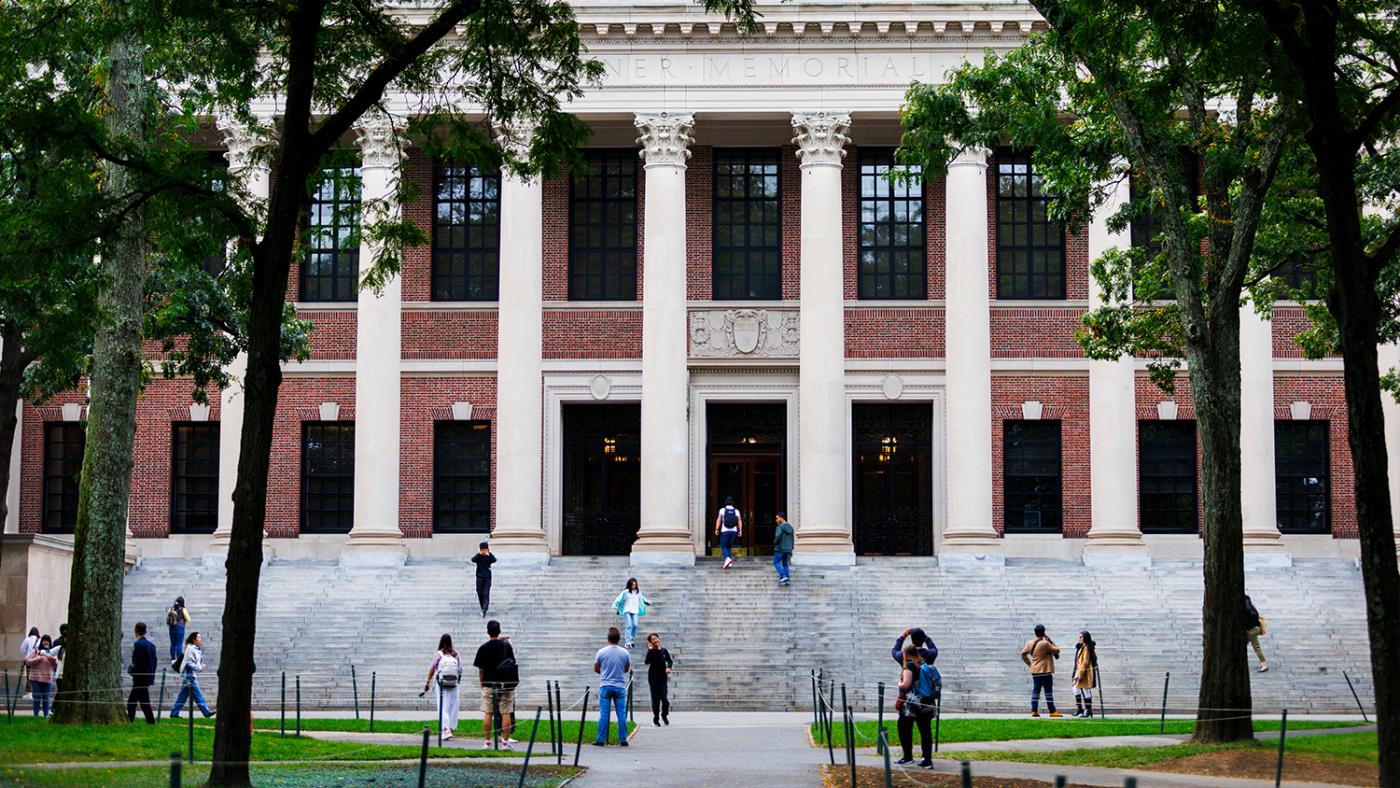An analysis of the consequences for other universities
Can Harvard withstand Trump's pressure?

The American government has been exerting pressure on Harvard University for months. Research and education subsidies were cut, international students were forced to leave, and threats were made involving the tax authorities and the public prosecutor's office.
'Essential safeguard'
Harvard resisted and has since scored several victories in court. On Monday, a final ruling (on President Trump's umpteenth attempt to ban international students from Harvard) makes it clear that there is a lot at stake. According to the judge, the case revolves around “democracy as an essential safeguard against authoritarianism”.
As abstract as that sounds, it is now very concrete for Harvard. The subsidies that have been taken away amount to more than two billion dollars, and international students make up a quarter of the student population. Moreover, Trump wanted to prosecute the university for alleged fraud against the government. The government's power is great, but can Trump force universities to toe his line in this way, or does the rule of law protect them from blackmail?
Now that the court has left little doubt about the answer to that question, Trump's hopes seem to lie in a route outside the courtroom. A deal could put an end to the attacks and lawsuits against Harvard. Government officials have told the American press that they expect to reach an agreement this month.
Coercive policy
The consequences could be significant. Anonymous sources close to Trump told the New York Times and the Washington Post that they see a deal with Harvard as ‘a blueprint for the rest of higher education.’
Trump has used the same strategy of exerting intense political and legal pressure on law firms, media companies and other universities, such as Columbia University. They all chose to cooperate. They are trying to prevent greater damage by granting Trump “small” concessions, a decision that has been met with a lot of criticism from those who believe one should not give in to an authoritarian leader.
Trump's opponents in the US are pleased that Harvard, one of the country's most prestigious institutions, has taken up the gauntlet and fought back. For them, America's oldest and richest university is the perfect place to carry out a “rule of law check”. Will the rule of law prevail under Trump?
Diversity
In the Netherlands, the Minister of Education, Culture and Science, Eppo Bruins, recently warned that the Minister of Education should have less power to prevent similar situations from happening in the Netherlands. He believes that the government should interfere less with journalists and scientists.
Trump is looking to interfere with Harvard's admissions policy. In their view, anything that is “woke” must go. At the same time, Trump advocates “viewpoint diversity”. That may seem like a contradiction, but what he wants is for right-wing voices to flourish at Harvard.
Political diversity is a sensitive issue at Harvard. Some critics of the university, including former president Lawrence Summers (who served as Bill Clinton's Minister of Finance and Barack Obama's economic advisor), believe that it is true that Harvard has too little room for different perspectives.
However, Summers also says that this does not mean that the government should come in and solve the problem. After all, academic freedom is protected by law. In his view, it would be a disaster if Harvard were to strike a deal that rewards Trump's blackmail.
Historical
Harvard is keeping its cards close to its chest during the negotiations. Earlier, it seemed to move in line with Trump by emphasising how much it is already doing to combat anti-Semitism. The university is said to have given a presentation on this topic at the White House recently.
Meanwhile, Trump himself believes that his deal with Harvard will be ‘mind-bogglingly HISTORIC,’ as he wrote a week ago on his own social network. Whatever the outcome, he is right about that. It will indeed be a historic moment if Harvard succumbs, but it will be equally historic if the university chooses to resist.